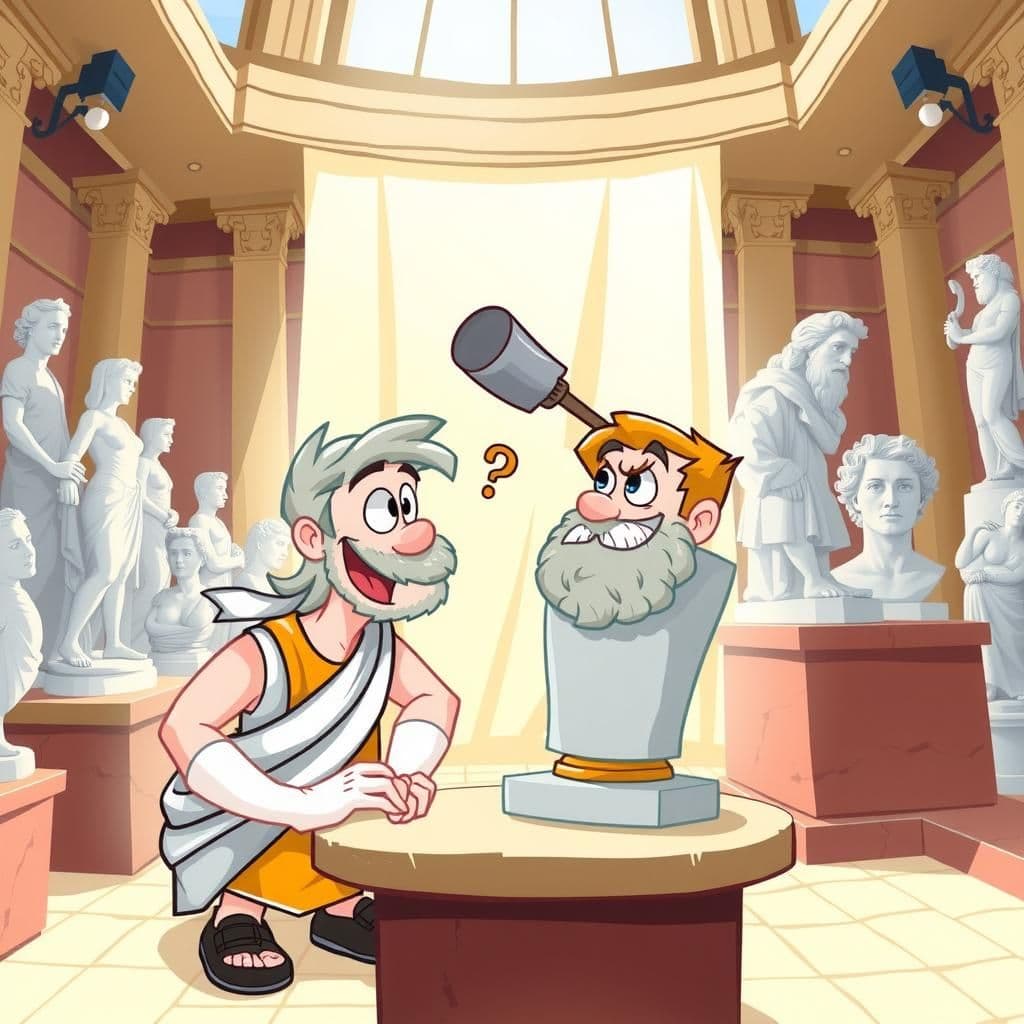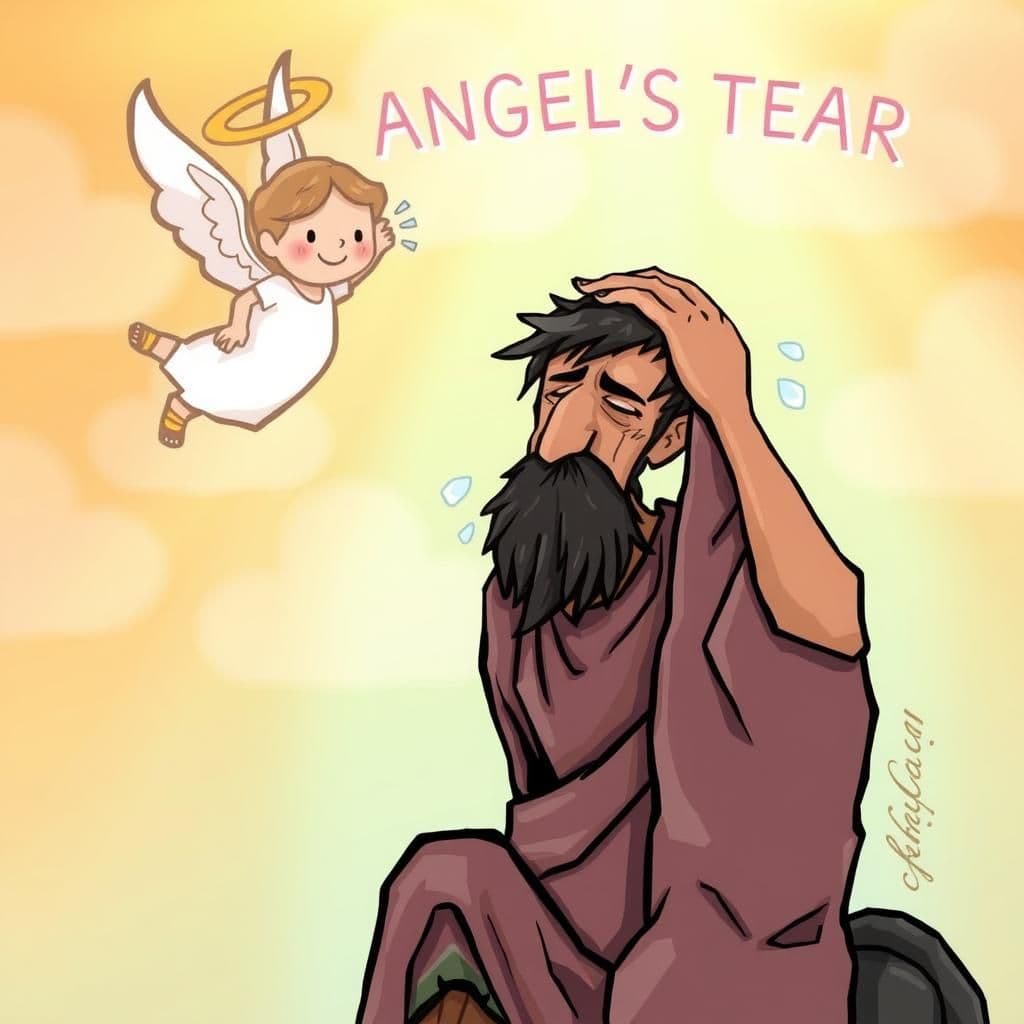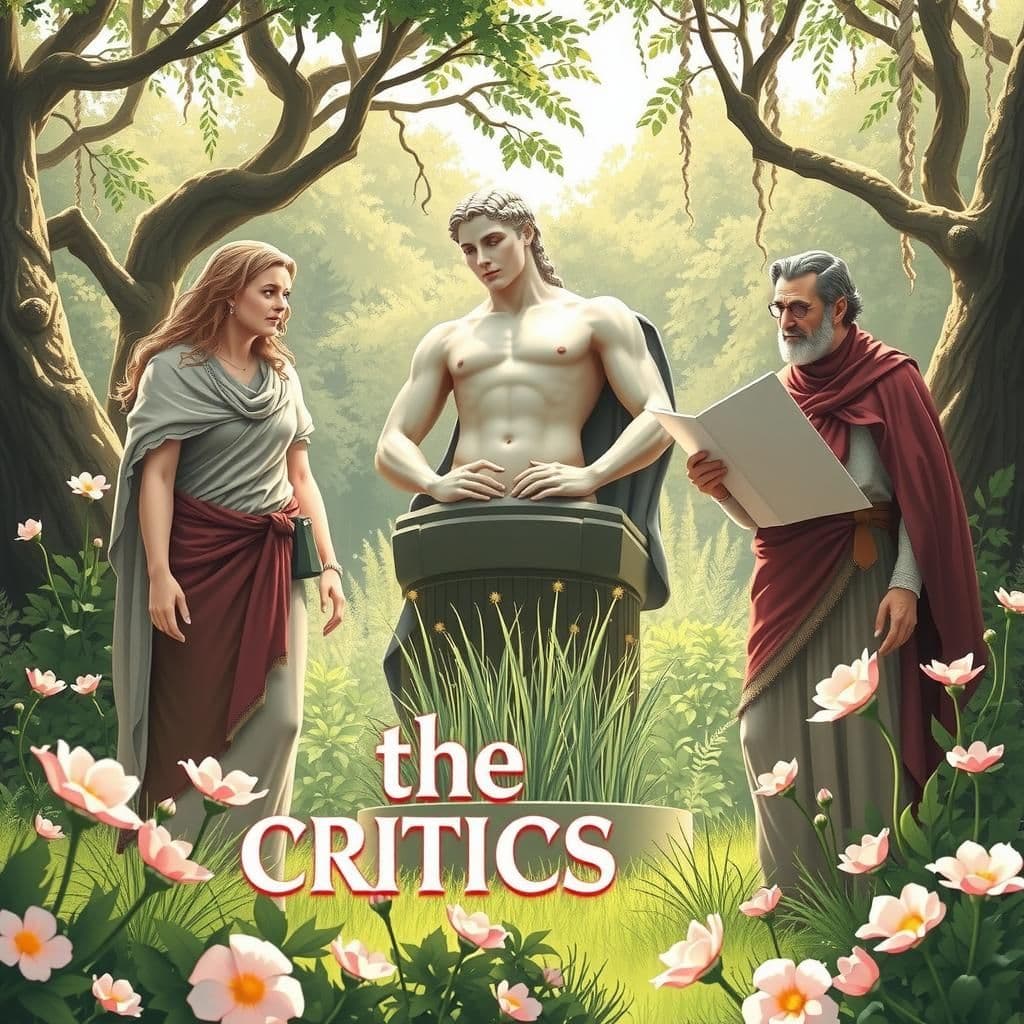Mercury and the Sculptor
In "Mercury and the Sculptor," Mercury, disguised as a man, visits a sculptor to assess his esteem among mortals. After inquiring about the prices of Jupiter and Juno's statues, he humorously suggests his own statue should be valued higher, only for the sculptor to quip that he'd throw it in for free if Mercury buys the other two. This concise moral story highlights the importance of humility and the sometimes inflated self-worth that can lead to humorous situations.

Reveal Moral
"The story illustrates that true worth is often unrecognized, and those who contribute greatly may be undervalued by others."
You May Also Like

The Angel's Tear
In "The Angel's Tear," a classic moral story, an unworthy man who once mocked the misfortunes of the woman he loved regrets his actions while dressed in sackcloth and ashes. The Angel of Compassion, observing his plight, drops a tear that turns into a hailstone, striking him on the head and causing him to fumble with an umbrella, prompting the Angel to laugh at his misfortune. This captivating tale serves as a simple moral story about the consequences of laughing at others' suffering, making it a memorable addition to famous fables with moral lessons for kids.

The Critics
In this creative moral story, Minerva, captivated by the beauty of Antinous, inadvertently turns him to stone when he glimpses her shield adorned with Medusa's head. As she seeks Jove's assistance to restore him, a Sculptor and a Critic debate the artistic merits of the petrified figure, missing the deeper lessons from this tragic folklore. This tale exemplifies the themes found in popular moral stories, reminding us of the importance of empathy and understanding over superficial critique.

The Mountain in Labor
In "The Mountain in Labor," a seemingly distressful mountain draws a crowd eager to witness a significant event, embodying the anticipation often found in unique moral stories for kids. Ultimately, the mountain produces nothing more than a small mouse, illustrating the lesson that great expectations can lead to trivial outcomes, a theme reflected in many real-life stories with moral teachings. This easy small story with moral reminds us not to make much ado about nothing.